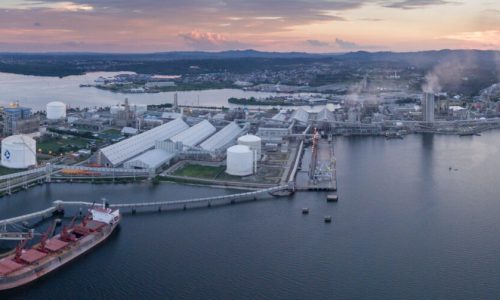Local Indonesian startup Fresh Factory received IDR 61.8 billion (US$ 4.15 million) in pre-series A funding led by SBI Ven Capital and joint investment with Kyobo Securities, NTUitive, and participation from previous investors such as East Ventures, Trihill Capital, and a new investor, PT Tap Applied Agri Services.
Proceeds from the funding initiative will be used to accelerate business growth to achieve the company’s target of providing upstream to downstream services in the logistics sector and cold chain fulfillment with a hyperlocal strategy.
Quoted from coldchaintech.com, cold chain fulfillment is the process of cold chain products moving from the manufacturing point to the end user through multiple locations that include manufacturing, distribution, and storage before reaching the end user.
Meanwhile, according to marketeers.com, hyperlocal strategy is a marketing strategy to advertise or promote products to make transactions based on the target area.
The company is targeting to expand its network to more than 100 fulfillment service points in 50 cities in Indonesia by the end of 2023. The expansion will be focused on cities with high populations in Sumatra, Sulawesi, Kalimantan, and second-tier cities in Java.
In addition, the funding will be used to recruit employees, improve quality, drive logistics efficiency, and expand the network of fresh produce in the company’s cold chain services.
Projected opportunity and risk in the cold chain industry
According to the Indonesian Cold Chain Association (ARPI) as reported by Hasanuddin Yasni, global business prospects for fresh products that require quality cooling chains are predicted to grow by 17.9%, as the Asia-Pacific Region continues to grow.
Meanwhile, Setijadi, Chairman of Supply Chain Indonesia, said that the cold chain sector has enormous potential for growth, especially in relation to fresh commodities such as agriculture, livestock, and fisheries; which have a perishable rate of up to 40%.
The biggest potential is driven by an increase in e-Commerce users who choose to shop for staple needs such as food, drinks, and supplements online. Rapid growth was also driven by an increase in market demand for frozen food during the pandemic.
Based on the analysis of Supply Chain Indonesia (SCI), the Indonesian fishery logistics market has a potential value of IDR 43.1 trillion, which makes cold chain solutions services highly important and crucial.
However, the application of cold chains is rather complex as it requires specialized tools and facilities in the process of storage and distribution.
Not enough cold
It is recorded that the current 12.5 million cubic meters of cold chain facilities provided in Indonesia are not sufficient to meet the demand for frozen food. Needs outside Java Island are still not covered even though the demand is not as much as in Java.
According to Yasni, Indonesia must have at least 40 million cubic meters of cold chain facilities to fuilfill the demand of the frozen food industry.
The projected demand for cold storage in Indonesia can be seen in the following table:
Source: PT Capricorn Indonesia, 2019 taken from the e-Training & e-Certification Cold Chain Logistics Module
Source: ITA Cold Chain Top Markets Report, 2016 taken from e-Training & e-Certification Cold Chain Logistics Module
According to the Ministry of Maritime Affairs and Fisheries (KKP), the largest demand for cold storage in Indonesia is located in the Java. In Java, currently available cold storage facilities are only capable of accommodating 14.15% of the total needs.
The KKP further added that there is a wide gap in the level of cold storage demand compared to the availability of cold storage in Indonesia. This condition shows that the business opportunity for cold storage in Indonesia is still very large.







